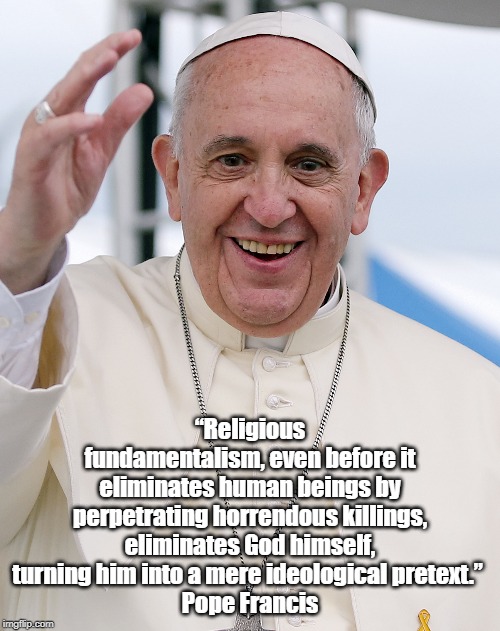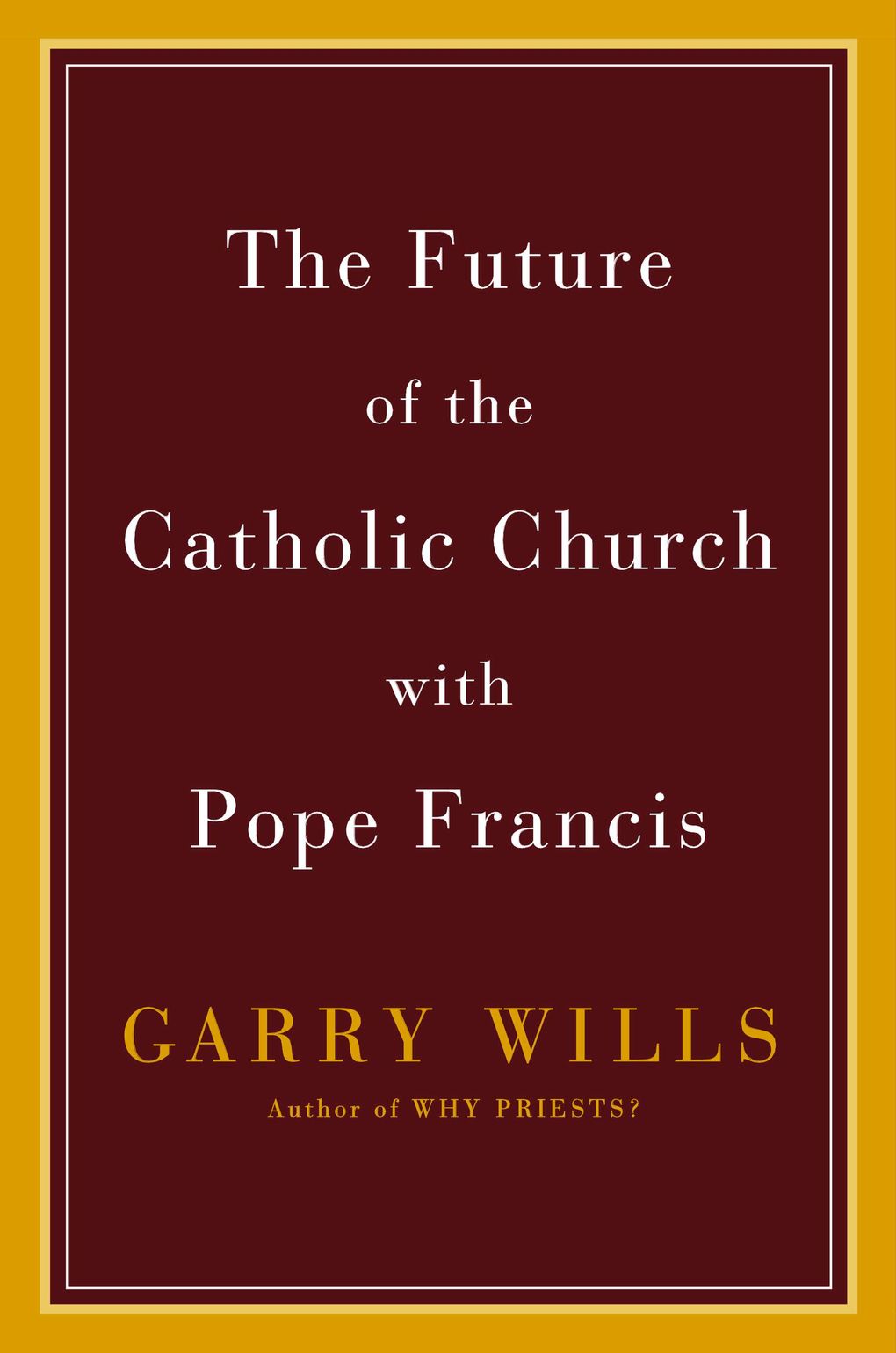Garry Wills: 'When I look at Pope Francis, I see Jesus'
Garry Wills has been writing about the Catholic Church (and many other things, including history and politics) for more than 50 years.
The 80-year-old has written more than 40 books, including “A Necessary Evil: A History of American Distrust of Government” (2000), “Why I Am a Catholic” (2002), “What Jesus Meant” (2006) and four on St. Augustine alone, and his latest is “The Future of the Catholic Church With Pope Francis.”
Lit Life
Garry Wills is what the cognoscenti call a “public intellectual.” He thinks deeply, and then goes public with his thoughts. Not a mission for the faint of heart, especially when it comes to the Roman Catholic Church.
Wills is both a lifelong member of the church, and one of its fiercest critics. His current preoccupation is with Pope Francis, the Argentine formerly known as Jorge Mario Bergoglio. Wills has high hopes for the new pope’s ability to shine a light into the dark corners of the church, but he’s under no illusion that it will be easy.
Wills discusses his new book “The Future of the Catholic Church with Pope Francis”(Viking, $27.95) in Seattle on March 17. Reader alert — despite the title, this book is not so much about Pope Francis as an informed look at the Catholic Church and the challenges he faces. Whether you are religious or not, it’s a subject worth paying attention to — the two “super religions” of the world are Roman Catholicism, with 1.2 billion believers, and Islam, with 1.6 billion believers out of 7.3 billion people worldwide (figures are approximate).
Author appearance
Garry Wills
The author of “The Future of the Catholic Church with Pope Francis” will appear in conversation with Seattle author Rebecca Brown at 7:30 p.m. Tuesday, March 17, at Town Hall Seattle, 1119 Eighth Ave. Tickets are $5 at townhallseattle.org and at the door.
Pope Francis achieved a lot of “firsts” with his election — the first Jesuit pope, the first pope from the Southern Hemisphere, the first non-European pope in more than 1,200 years. He is known for his humility, his concern for the poor and his outreach to people of all faiths. But can he influence and reform a church hierarchy mired in scandals like priestly pedophilia and in the thick of internal doctrinal wars over issues such as birth control and the status of women in the church?
Q. What are some of Pope Francis’ biggest challenges?Wills, a Pulitzer Prize-winning historian, author and professor emeritus of history at Northwestern University, is hopeful:
A. He faces a living, undisgraced pope living next to him (Pope Benedict XVI, who retired from the position for health reasons). He has to keep looking over his shoulder. He can’t degrade the office. He can’t attack the office. On the other hand, he has made it clear that he doesn’t think of himself as the boss, he’s serving the boss. That is Jesus. His whole attitude is of service. He really feels it in his bones.
Benedict tried to open up a dialogue about Muslims — he didn’t know what he was doing. He created riots. This pope was a good friend of the Muslims in Buenos Aires. He went to their mosques. He went to the funeral of their leader.
Q. Many people believe Francis will be an agent of change. If that’s the case, how did he get elected in the first place?
A. The Curia (the Roman Curia, the central government of the Catholic Church) was very disoriented by scandals, and by Benedict’s resignation. (In Francis) they thought they would get a pastoral person, not a doctoral person. … There was always a faction that really liked him, because of his exemplary work with the poor, with Jews, with Muslims. He is a uniter, not a divider. There’s a great parallel in Pope John XXIII. He was not perceived as a challenger to the Curia (John XXIII, pope from 1958-63, became a church reformer and advocate for peace and disarmament).
Q. What makes you hopeful that the church leadership can change?
Q. What makes you hopeful that the church leadership can change?
A. Much of the change I think should happen is happening and has already happened….. the people of God move in ways that the hierarchy is not dictating.
For instance, now, 85 percent of Catholics practice contraception, or have (contrary to official church doctrine). That was just accepted by priests, by confessors. But the bishops continued not only to preach the ban but to insert it into American politics, as with Obamacare because they knew their careers depended on towing the line with Rome.
Well, now that’s not going to be the career path upward. It’s not going to make you, as a monsignor, become a bishop.
Q. It sounds like a long-term job, to change such an entrenched church bureaucracy.
A. He has to hold together the factions of the church. He is trying to be the servant of them all, as he does with Jews and Muslims. I hope he lives a long time, though I think the Curia thinks he won’t (Pope Francis is 78). I think that’s why the Curia put him in.
Mary Ann Gwinn: 206-464-2357 or . Gwinn appears every Tuesday on TVW's "Well Read," discussing books with host Terry Tazioli (go to for archived episodes). On Twitter @gwinnma.
"The Future Of The Catholic Church With Pope Francis"
Reviews
The Chicago Tribune
The Guardian
"Pope Francis Links"
Pope Francis: Quotations On Finance, Economics, Capitalism And Inequality
Pope Francis: One Of The Most Powerful Critiques Of Capitalism You Will Ever Read
"Pope Francis Links"
Pope Francis: Quotations On Finance, Economics, Capitalism And Inequality


No comments:
Post a Comment